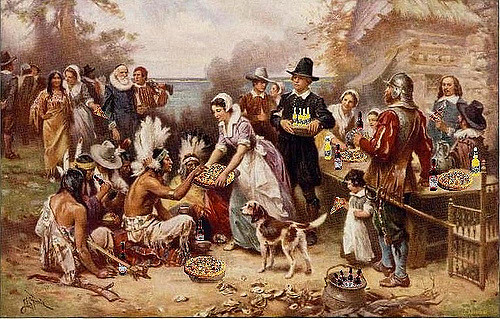Remember last week, when we all thought we wanted the election to be over so the hostile, divisive politics could give way to healing?
Oh, how naive we were.
We’ve been driving toward a polarized system for decades, amplified during Bill Clinton’s administration with the Newt Gingrich-led Contract With America. Today’s divisions are just the latest development in a long trend.
What if we stopped shouting at each other and generalizing about each other, and tried to talk with each other respectfully?
If my husband and I talk about what we want to have for dinner, just between the two of us it’s possible to come up with more than two reasonable answers.
Take a major complex issue like abortion or guns or immigration or trade — is it really possible there are only two binary views on any of them? Instead of seeing important issues facing our country as two football teams we can root for or against, could we start with finding the parts of those issues where we agree?
For example, every pro-choice advocate I know would like fewer abortions in America. That’s what pro-life advocates want, too, so is there an opportunity to start where they agree instead of locking into an all-or-nothing battle?
Going back to the oversimplified analogy of my husband and I making our dinner plans, we start by checking some basic assumptions — we’re both eating dinner tonight, we’d like to eat dinner together — then we each list off options. I’d love tacos or a veggie stir fry, my husband would eat pizza almost every night … but he also loves tacos. So we don’t argue how I don’t feel like pizza or he’s not feeling stir fry, we move forward on our agreement about tacos.
A big part of why this works is that we care about each other’s happiness. We aren’t trying to win, we’re trying to cooperate to find a way that works for both of us.
Can we treat our fellow Americans with the same love and concern we’d show a family member? Can we see all 320 million Americans as our extended family?
When you’re having Thanksgiving dinner this year, if you’re sitting across the table from someone who voted differently than you, will you throw gravy, flip the table and walk out? Or will you hug and try to broach your differences in a way that’s civil and doesn’t ruin dinner?
Can we think of our country as a bigger version of Thanksgiving dinner?

My Midwestern childhood was full of images of Indians in feathered headdresses joining newly arrived pilgrims to celebrate the bounty of our shared land. In elementary school, we dressed up in construction paper pilgrim hats to re-enact two cultures coming together over a meal.
Even if you don’t believe the first Thanksgiving actually happened, think about that origin story: When white people showed up in a place Native Americans already inhabited, the natives showed the immigrants how to survive, then celebrated their success.
We travel great distances to eat turkey with our families around this tradition built on unity, not division.
How differently would Native Americans and Europeans have seen the arrival of pilgrims to stake a claim to North American soil? About as differently as Trump and Clinton supporters see the results of Nov. 8?
The reality is that about half of Americans didn’t vote for president this year, about a quarter voted for Trump, about a quarter voted for Clinton. The split between the major candidates was narrow, with Clinton getting more of the popular vote and Trump getting more of the Electoral College.
Meanwhile, I watched a video of conservative commentator Glenn Beck where he cites statistics that more than half of Trump and Clinton voters were not happy about voting for their candidate. (I haven’t been able to find the source of that number, but here are some related figures.)
If you voted, you and your fellow supporters of your candidate are in the minority in the U.S., and further, there’s division among those who voted for the major party candidates.
What does that mean? In a country commonly referred to as a melting pot, we need to listen to each other and try to find common ground. Not just when you’re having Thanksgiving dinner with your family, but every day.
Liberal filmmaker Michael Moore speaks to why Trump won — the divide between the liberal elite and the working class, and the importance of those two groups listening to each other and trying to understand each other.
https://www.youtube.com/watch?v=PnqY8Rr4mAI
I’m hardly the first to write about what Thanksgiving means in this year’s political climate. Here are a few articles to read before you sit down to eat:
- Fight, flight or drink: Surviving Thanksgiving when you hate how your family voted
- Are Donald Trump and Hillary Clinton Going to Ruin Your Family’s Thanksgiving?
- How To Survive Thanksgiving With Your Family Post-Election
- Political Divide Splits Relationships — and Thanksgiving, Too
Related blog posts:
- “Change” as the single-word political platform — from 2009, timed to Obama’s first inauguration
- Would anybody want to run a business the way we run our country? — from 2013, with government in gridlock in Obama’s second term


1 Comment
nansanpo
Well said, Colleen.
Leave a reply